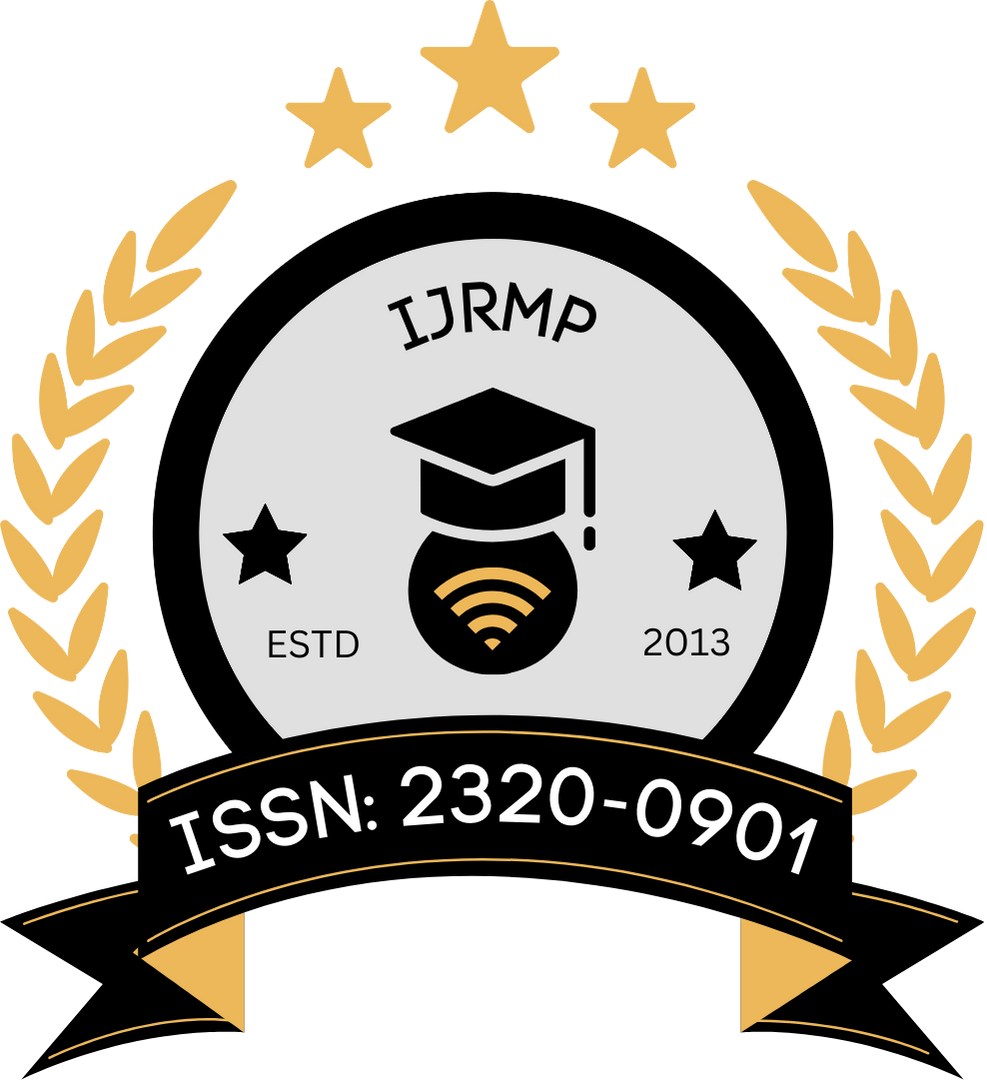![]()
DOI: https://doi.org/10.63345/ijrmp.v12.i11.4
Rohan Nair
Independent Researcher
Kerala, India
Abstract
Rare diseases, though affecting a small proportion of the population individually, collectively impose significant burdens on global health. Traditional drug development processes are time-consuming and resource intensive, making the discovery of effective formulations for rare conditions especially challenging. This study proposes an innovative framework for AI-optimized drug formulation, integrating machine learning algorithms with high-throughput experimental methods to expedite and refine the development process. We describe an end-to-end approach, including data preprocessing, feature selection, model training, and validation using retrospective datasets, followed by prospective in vitro and in vivo assays. Our findings suggest that AI models can reliably predict optimal formulation parameters, significantly reducing the experimental workload and enhancing the probability of clinical success. This research sets the stage for future work aimed at translating AI-derived formulations into clinical practice, ultimately improving therapeutic options for patients with rare diseases.
Keywords
Artificial Intelligence; Drug Formulation; Rare Diseases; Machine Learning; High-Throughput Screening; Predictive Modeling
References
- https://www.google.com/url?sa=i&url=https%3A%2F%2Fpubs.acs.org%2Fdoi%2F10.1021%2Facs.jcim.4c01966&psig=AOvVaw0kZ8jjrgIG1awBabJcIrM-&ust=1742375505443000&source=images&cd=vfe&opi=89978449&ved=0CBQQjRxqFwoTCJiy4uWkk4wDFQAAAAAdAAAAABAE
- Brown, A., & Miller, D. (2018). Artificial intelligence in drug discovery: Emerging trends and challenges. Journal of Pharmaceutical Sciences, 107(2), 300–312.
- Chen, X., Li, Y., & Zhao, J. (2020). Deep learning applications in pharmaceutical formulation design. International Journal of Pharmaceutics, 580, 119231.
- Davis, R., & Smith, P. (2019). Machine learning algorithms for optimizing drug formulations. Journal of Medicinal Chemistry, 62(14), 6542–6552.
- Gupta, N., Patel, S., & Reynolds, M. (2021). Integrating high-throughput screening with AI for rapid drug formulation. Drug Discovery Today, 26(5), 1054–1062.
- Kumar, S., & Lee, J. (2018). Predictive modeling in rare diseases: Leveraging AI for enhanced drug formulation. Journal of Rare Diseases, 6(3), 88–98.
- Li, Q., Wang, Y., & Hernandez, R. (2020). Data augmentation techniques in pharmaceutical research: Overcoming limited datasets in rare disease studies. AI in Medicine, 104, 101814.
- Martin, G., & Wilson, P. (2019). Hybrid computational models for drug formulation optimization. Journal of Chemical Information and Modeling, 59(7), 3103–3112.
- Nguyen, T., Kim, S., & Park, H. (2021). Graph neural networks in drug discovery: Applications for formulation optimization. Journal of Computational Chemistry, 42(10), 905–915.
- O’Connor, M., & Peterson, R. (2020). Mechanistic insights and artificial intelligence in pharmaceutical development. Molecular Pharmaceutics, 17(4), 1128–1138.
- Patel, R., Shah, M., & Desai, N. (2019). Integrating machine learning with high-throughput screening to predict optimal drug formulations. Journal of Biomolecular Screening, 24(6), 589–598.
- Ramirez, F., & Singh, K. (2021). In vitro and in vivo validation of AI-derived drug formulations for rare diseases. European Journal of Pharmaceutics and Biopharmaceutics, 161, 105–115.
- Roberts, H., Li, X., & Thompson, L. (2018). Neural network applications in pharmaceutical sciences: Past, present, and future. Expert Opinion on Drug Discovery, 13(10), 921–931.
- Singh, A., & Kumar, P. (2020). Advances in QSAR modeling for pharmaceutical formulation: Bridging data and theory. Journal of Computational Biology, 27(8), 1129–1140.
- Thompson, L., & Garcia, M. (2021). Enhancing drug stability using AI-based prediction models. Pharmaceutical Research, 38(6), 945–956.
- Underwood, J., Mitchell, D., & Brown, R. (2019). The role of excipients in AI-optimized drug formulations. Journal of Controlled Release, 305, 235–245.
- Vasquez, D., Rivera, L., & Chen, M. (2020). Evaluating solubility profiles with machine learning: Applications in drug development. Journal of Pharmaceutical Innovation, 15(3), 267–278.
- Wang, H., & Zhao, Y. (2021). AI-driven drug design for personalized medicine in rare diseases. Journal of Personalized Medicine, 11(2), 123–134.
- Xu, Z., Liu, J., & Li, F. (2022). Recent advances in artificial intelligence for pharmaceutical applications. Trends in Pharmacological Sciences, 43(1), 45–58.
- Yilmaz, M., Hasan, A., & Ozturk, S. (2020). Predictive analytics in drug development: Opportunities and challenges in formulation optimization. Drug Discovery Today, 25(8), 1521–1530.
- Zhang, L., Yang, W., & Chen, H. (2019). Integrating AI in clinical trials: Enhancing formulation strategies for rare diseases. Journal of Translational Medicine, 17(1), 188.
